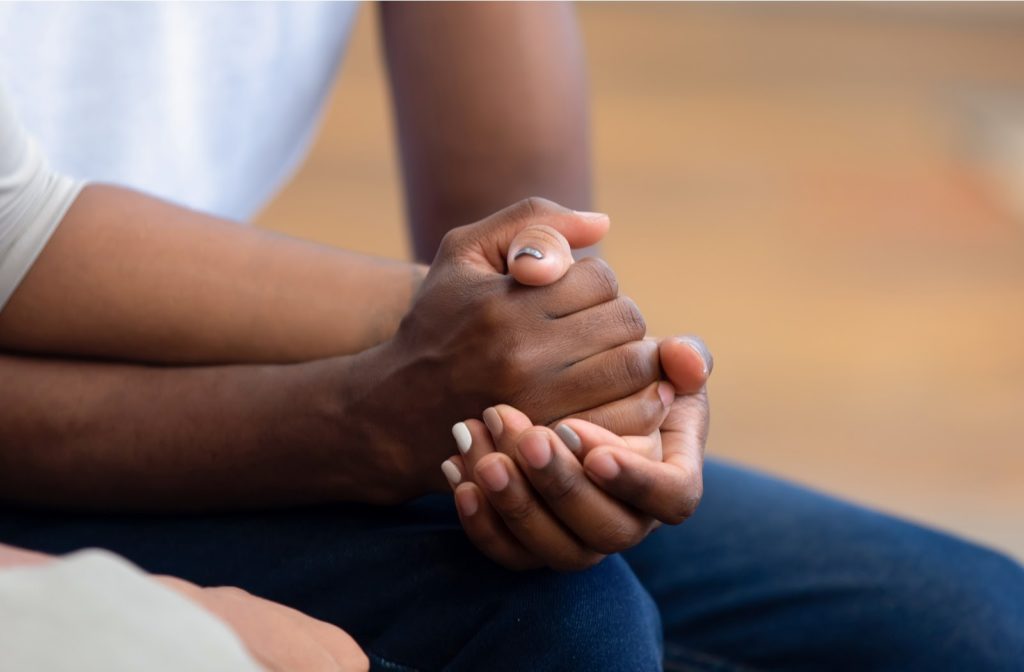What is Addiction?
Addiction is a powerful disease that, according to the last Canadian Alcohol and Drug Use Monitoring Survey in 2012, affects an estimated 21.6% of the Canadian population. This number means that over 8 million people meet the criteria for a substance abuse disorder.
The dangers of addiction are taxing on individuals, their families, and an entire system. It’s important to recognize the signs of addiction and relapse for those in recovery.
What is Relapse?
Someone on the road to recovery can be faced with a battle of thoughts, feelings, and temptations.
A person trying to stop using substances can make mistakes, feel negative emotions over the situation, and begin using again. When someone returns to old addictive behaviors or patterns, this is called relapse. A complete relapse is when the individual has given up on all areas of recovery.
The severity of relapse can be defined on a spectrum from low concern to high concern, and people recovering from addiction will often have more than one relapse. It’s difficult to completely change your day-to-day habits to adhere to life without drugs.
For those trying to understand addiction without having experienced it, it’s akin to attempting to diet and lose weight. After living a certain way for an extended amount of time, it’s challenging to learn how to do things differently.
The critical thing to remember is that even if someone slips up and returns to old behaviors, they can always try again. An individual that has experienced a form of relapse can return to treatment or receive other professional support as many times as they need until it’s effective, and supporting them throughout can make all the difference.
If you are a loved one, it is okay to feel feelings of frustration and disappointment when someone you care for experiences relapse. However, it is important that we respond with compassion and empathy. Increasing shame can increase the relapse, and alternatively, by decreasing shame you can decrease the relapse.
The Dangers of Relapse
Depending on the substance, a relapse can be dangerous, and in some cases, fatal. A person in recovery will not have the same tolerance to drugs or alcohol that they did before quitting.
More often, with drug use, if an individual takes the same dose that they normally took while in active addiction, it can result in an overdose. An overdose can cause severe, harmful symptoms and may result in death.
Stages of Relapse
Recovery is a difficult journey that takes significant determination and willpower. Understanding the stages of relapse can play a valuable role in helping your loved ones through recovery.
The stages of relapse are:
- Emotional relapse
- Mental relapse
- Physical relapse
Emotional Relapse
When someone goes through the emotional stage of relapse, they’re not thinking about using – but their emotions are setting them up for a possible relapse.
Symptoms of emotional relapse are often synonymous with post-acute withdrawal. Understanding these signs and symptoms can help play a part in relapse prevention, as it’s the easiest stage to pull back from.
Signs of emotional relapse include:
- Anxiety
- Intolerance
- Anger
- Defensiveness
- Mood swings
- Isolation
- Not asking for help
- Not attending meetings
- Poor eating habits
- Poor sleep habits
Mental Relapse
Mental relapse becomes increasingly challenging for a person in recovery. Their mind is often at war between wanting to use and wanting to stay clean.
Mental relapse creates active thoughts about using, making it difficult to make the right choices.
Signs of mental relapse include:
- Thinking about people, places, and things you used with
- Glamorizing past use
- Lying and being secretive
- Hanging out with friends that still use
- Active thoughts or conversations about using
Physical Relapse
The transition from the mental to the physical stages of relapse is often rapid. It’s difficult to resist the pull of addiction once active thoughts have entered someone’s mind who is currently in recovery.
Physical relapse involves using substances again. If someone you know has physically relapsed, it’s essential to focus your efforts on helping them seek treatment or professional support as soon as possible.
Triggers & Warning Signs
Preventing a relapse cannot always be done, but knowing the early warning signs and triggers can help.
Triggers
Relapses can happen suddenly and are often brought on by triggers – an event, person, or interaction – that causes someone to justify using again. Typically, triggers are based on something that reminds them of using and how it made them feel.
Common triggers are:
- Negative emotions (stress, anger, fear, guilt, loneliness, etc.)
- Reminders of using (people, places, events)
- Exposure to substance use
- Seeing or sensing an object of addiction (seeing a syringe or alcohol commercial)
- Social pressures to use
- Overly positive emotional states (having fun at a party and wanting to feel even better)
- Using other substances (recovering from drug use but still drinking alcohol)
Warning Signs
Keeping an eye on a loved one in recovery is important to helping them through their journey. Certain situations can make a relapse more likely, such as major changes or hardships, so being there for your loved ones can help minimize the chances of a relapse.
Some warning signs to look out for are:
- Overconfidence or cockiness
- Self-pitying attitude
- Dishonesty
- Hanging out with old friends from substance use days
- Changes in personal hygiene, sleep, or appetite
- Sudden changes in routine
- Irresponsible behaviour (skipping school, work, or appointments)
- Missing meetings or treatment programs
Preventing Relapse

Being a pillar of support is the greatest thing you can offer someone in recovery. Helping your loved one understand that not everything can be controlled, and the best thing they can do is be prepared for triggers and other uncomfortable circumstances.
Some ways you can help include:
- Discussing triggers and what might help to resist and overcome them
- Offer guidance and support when needed
- Involve them in healthy, sober activities
- Help them find therapy or support groups for like-minded individuals
- Avoid exposure to drugs and alcohol
Overall, helping someone going through recovery to maintain a healthy lifestyle can make a world of difference on their journey to sobriety. Proper nutrition, rest, and exercise can help them feel their best and reduce their desire to use again.
At Calgary Dream Centre, we have a myriad of programs and resources to help those with substance abuse disorders. If you want to help, we have volunteer and donation programs available that can significantly improve the lives of our clients.



